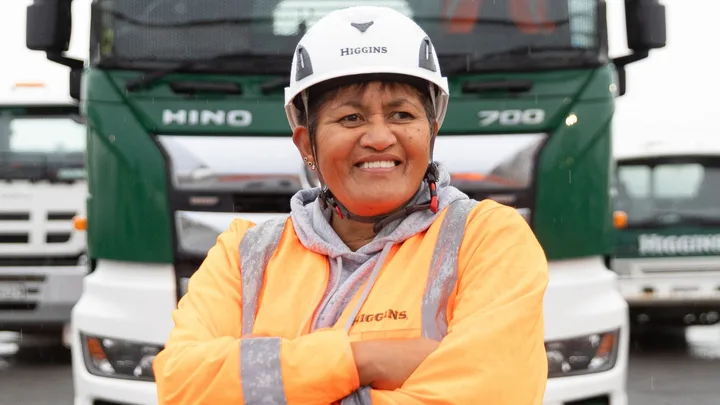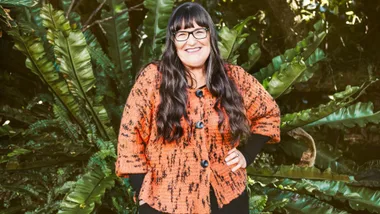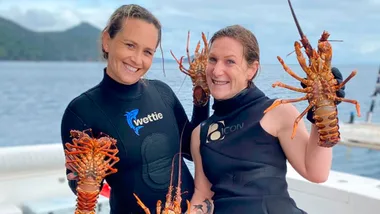Corrina Marunui is a wahine who knows just how valuable women are in the workforce. As a teenager, she was part of the country’s first all-female army platoon. She has worked on fishing trawlers, farms, for the former Department of Māori Affairs, and as a coach driver.
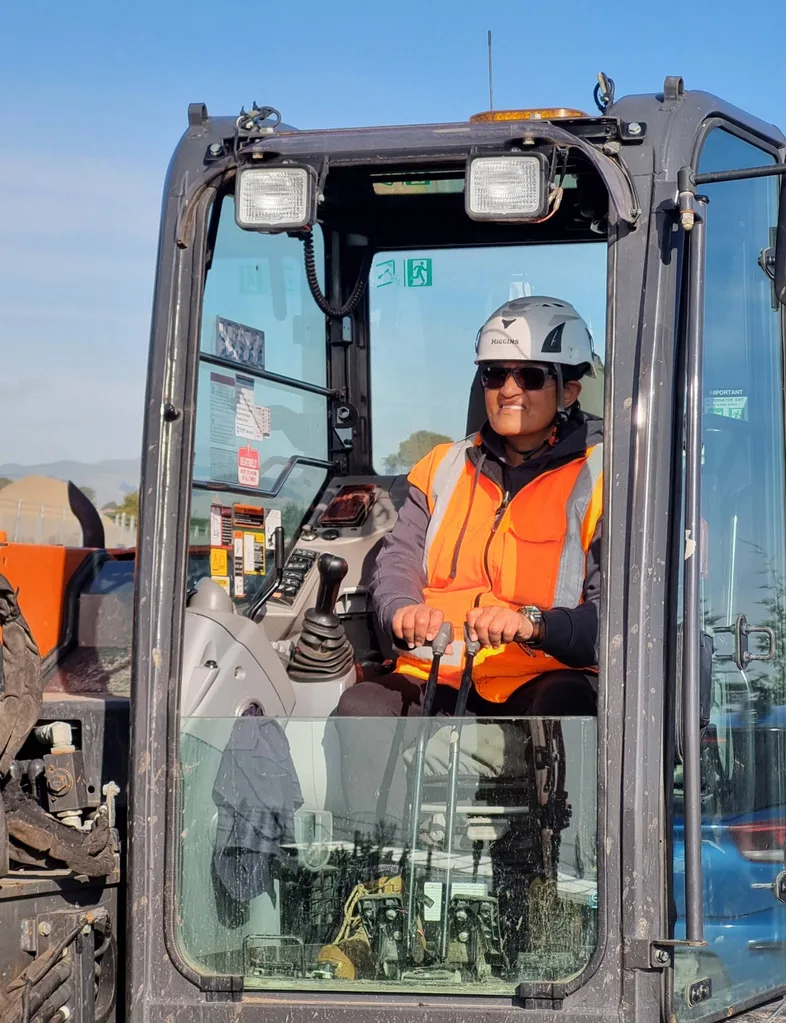
Defying expectation at every age
At 50, she earned a degree with honours in Māori studies. And at almost 60, she dived into the civil construction industry with no prior experience. Now she’s a specialist operator for Higgins Contractor. And has just been named a finalist in the apprentice category of the National Association of Women in Construction Awards.
Born in Murupara and raised in the Urewera bush country, then in Rotorua. Corrina grew up surrounded by nature and deeply connected to her Māori culture.
“The values and morals I was brought up on – tūpuna [ancestor] values – I still apply to everything I do, whether it’s work, family or socialising,” shares Corrina.
The only daughter in a family of five siblings. Corrina says she never doubted for a second that she could keep up with her brothers. But she was equally at home supporting her mother in caring for
the babies. Those early lessons built a powerful foundation, which Corrina carried into the military. Following in the footsteps of her uncles and brothers who had also served in the army.
She explains, “When we did our basic training in Burnham Military Camp in Christchurch, we were advised that we were the first all-women platoon. I don’t remember feeling like it was such a big deal at the time, but now I look back and see we were very fortunate – we were the pioneers; the pilot group.
“When it came to physical training, it could be challenging, like running 10 kilometres with a 20- kilogram backpack on – but we held our own.”
From the Army to all kinds of work
Grinning, Corrina says she and her platoon also often out-performed their male counterparts at the shooting range. They were issued a lighter rifle, even though it was known to be less accurate.
. After leaving the military in her early twenties, Corrina went wherever the work was. Labouring, fishing, forestry and the former Department of Māori Affairs. She raised her younger brother, who was just nine when their mother passed away at 50 years old. And also went on to have a son and daughter of her own.
‘It was a comletely new industry for me to come into’
“My parents were very hard-working and I feel fortunate that rubbed off on me,” she shares.
A new career behind the wheel
Eventually she found herself driving buses and coaches for 20 years before Covid-related job shortages pushed her to pivot again. Attending a Higgins Contractors open day, Corrina remembers feeling optimistic and at ease.
“It was a completely new industry for me to come into,” she says.
“But I wasn’t intimidated – there didn’t seem to be any discrimination whether I was experienced or not.”
Two days later, she started in traffic management. Within a year, word of her driving skills had spread and she transitioned into civil construction. Now on any given day, she wakes around 4.30am, working 10 to 12-hour days and could be driving or operating a digger, loader, six-wheeler or truck and trailer.
“And I love it,” beams Corrina.
Despite initially questioning whether she was too old to study. Corrina is also working towards her Level 4 civil infrastructure apprenticeship.
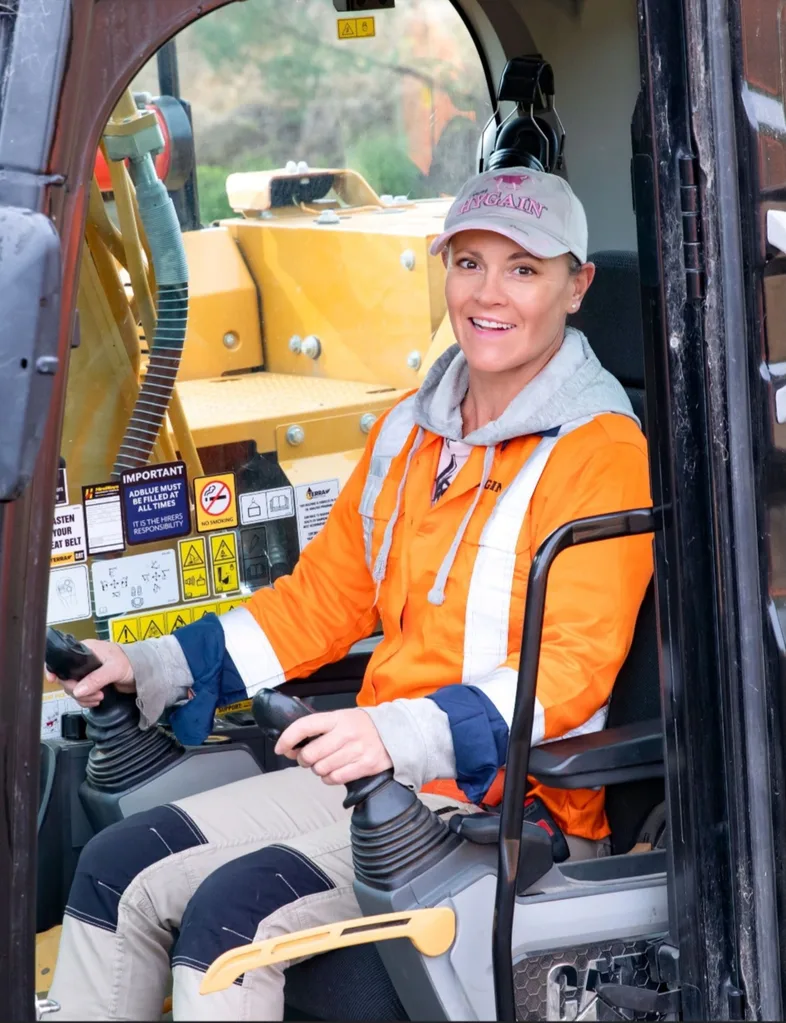
A Push in the Right Direction
“I wasn’t keen to study again, but HR manager Kimi Rewi convinced me it would be better opportunities and give me better knowledge of what I was doing,” she explains.
“If it wasn’t for Kimi and the support I get from my colleagues, I wouldn’t be where I am now. “Some of the old guys have been in the industry for 20 years. They’re so skilled and remind me of
my teachers in the army – ‘been there, done that, seen that types’.”
Staunchly humble, when asked about her recent award nomination. Corrina would much rather continue talking about the colleagues she respects so much.
“It’s not that I’m not appreciative of it – I’m just not used to it,” she insists.
“But if I can do anything to encourage other women in the sector, okay, I’ll stand up and take the praises on behalf of everyone.”
Quoting the well-known Māori proverb “He aha te mea nui o te ao? He tāngata,” (“What is the most important thing in the world? The people”), Corrina continues, “When it comes to my achievements – whether male or female, it’s the people that are most important.”
Thriving in an industry she never expected to join. Corrina hopes her career change late in life will show other women, “If aunty can do it, so can I.”
‘I wanted to do fashion’
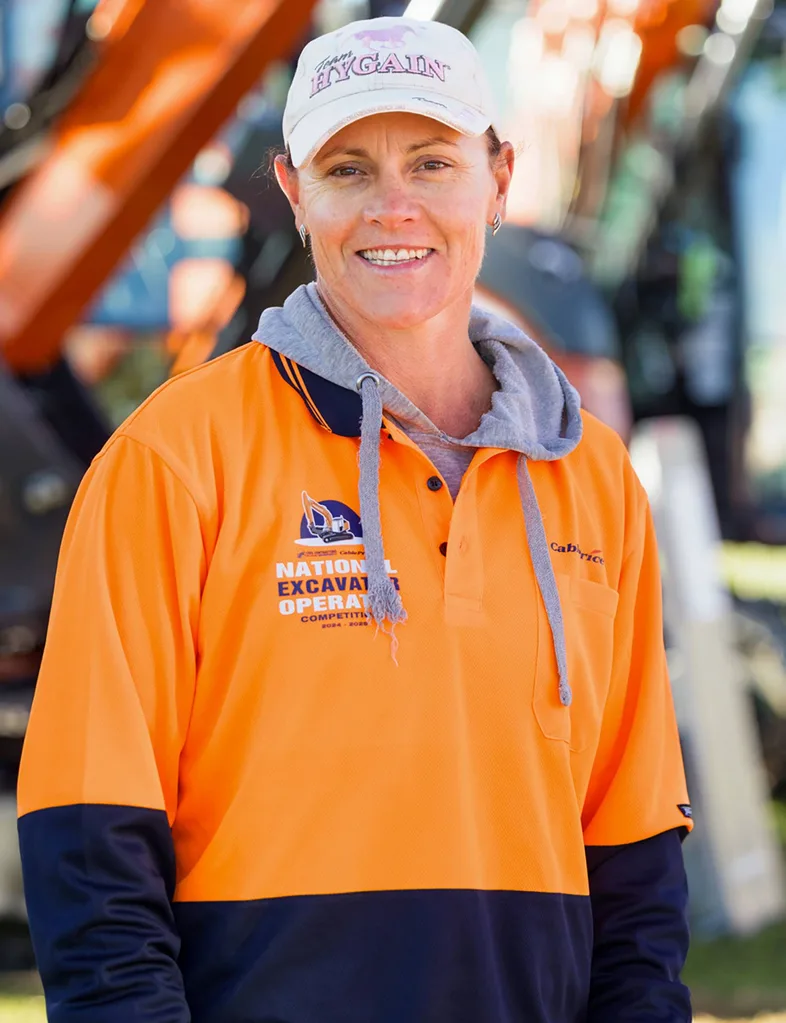
Making excavator history
Being one of the first women to ever qualify for the National Excavator Operator Competition finals in the annual event’s 31-year history is reason enough for Tanya Claxton to pop a bottle of bubbles. A skill she can also deftly perform with a five-tonne digger.
This year, Tanya – a foreperson at Higgins Contractors – won the Civil Contractors New Zealand Excavator Operator Competition Hawke’s Bay East Coast regional title. Beating out 11 male competitors to earn her place at the national finals. She joined Lydia Hill and Georgia Lyford, making history as the first women to reach the finals.
Just as good as the boys
“Because I’ve been in the industry for so long, it feels a little strange that there’s this hype around women doing the job,” says Tanya, 44. “But it was nice to have Lydia and Georgia there to show we are just as good as the boys.”
The competition was no ordinary workday. Operating five and 13-tonne diggers, Tanya expertly poured tea, scooped ice cream, played Connect Four and popped a bottle of Champagne. Though she didn’t place in the top three, the challenge has inspired her.
“I’m really competitive, so now I want to see how I can improve and how far I can get.”
Laughing, she shares that her road to construction was an unexpected one. Originally Tanya had dreamed of a career in fashion design and was saving money to attend further studies in the UK. When she took a casual role on a road crew.
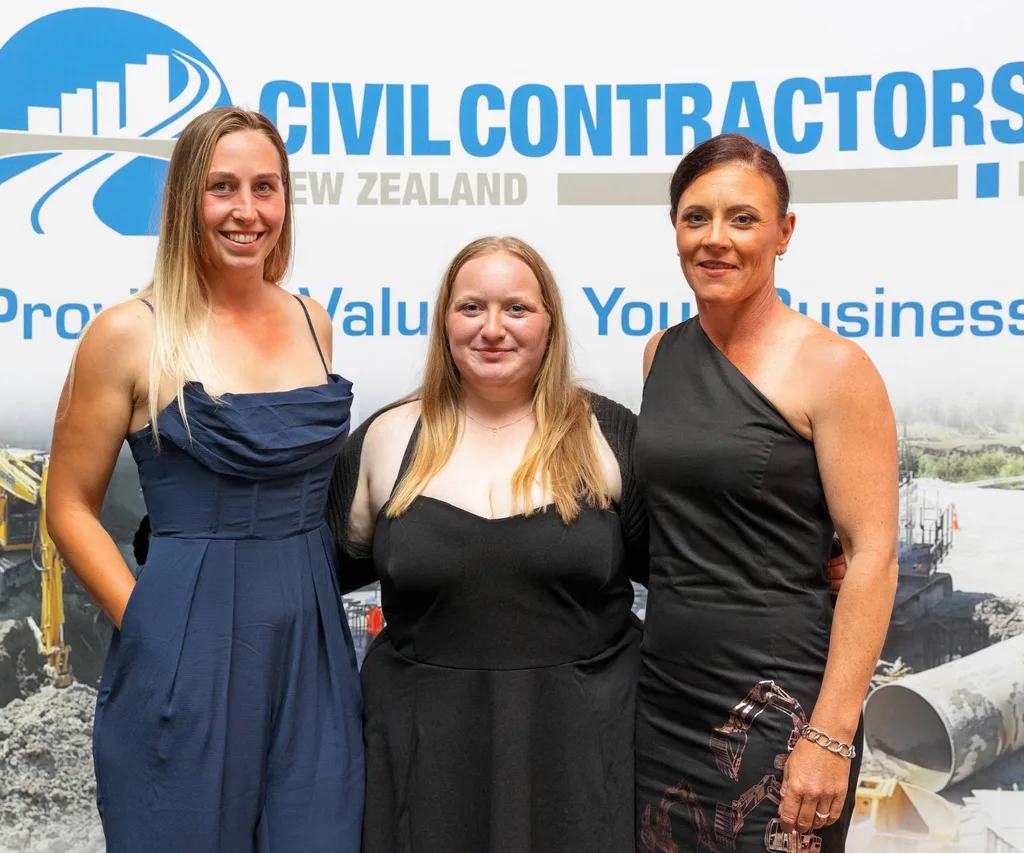
‘It feels a little strange that there’s a hype around women doing the job’
From Sun Chaser to Site Veteran
“I wanted to make the most of the sun before I went to London weather and there was a lollipop girl job going,” she says.
“One of my bosses at the time asked if I wanted to try the digger. Fast-forward 23 years and I’m still here. It just snuck up on me.”
Her fashion skills have come in handy over the years in the male-dominated field. Including sewing her own digger-themed dress for the evening of the excavator competition awards.
“I also remember altering hi-vis vests to fit me when I started out because personal protective equipment only came in men’s sizes.”
And while some doubted she could keep up, Tanya quickly proved otherwise.
“It was little things like people saying, ‘You need to be able to lift heavy things to do a man’s job.’ But what they didn’t realise is I am strong and I didn’t back down.”
Now Tanya also mentors other young women.
She enthuses, “If you have a good work ethic, and like learning and being outside, then try it because it can take you so many places. Don’t let it stop you because it’s a male-dominated industry. If you want to do it, don’t let anything stop you.”
Must love grease!
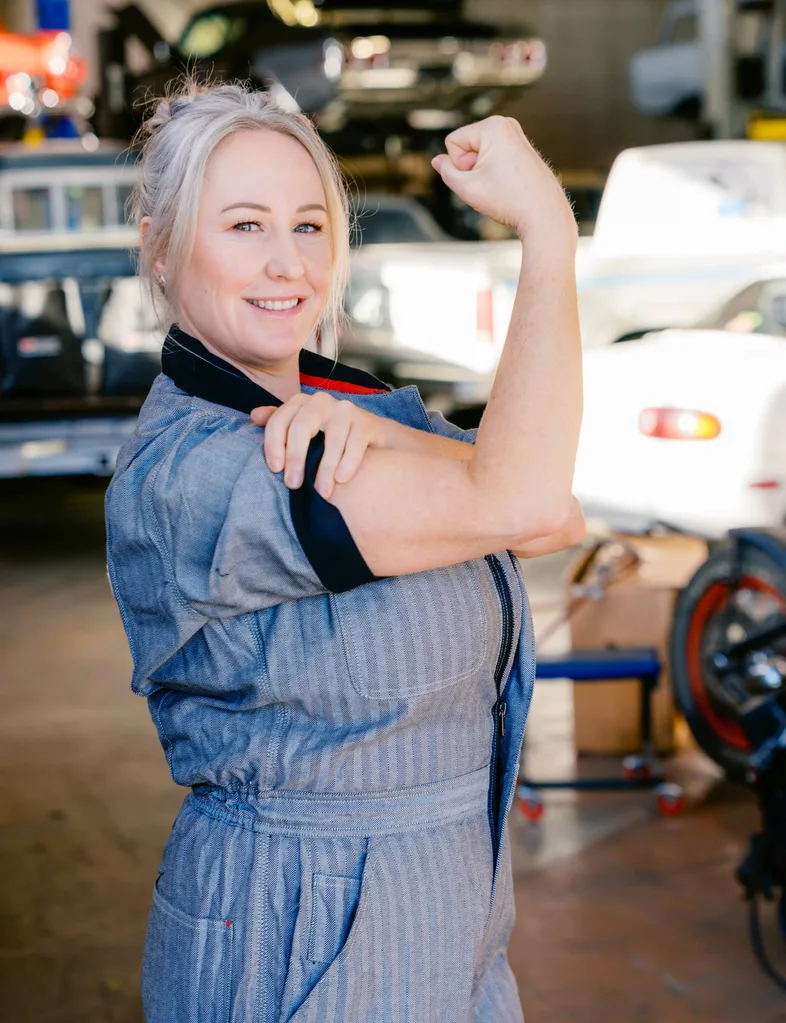
When women arrive at Melissa Hannan’s Girls ’N’ Gasoline workshops, they’re often reserved and more than a little nervous. But after learning to check and maintain the engine essentials, jumpstart a car, change a tyre and swap wiper blades and headlight bulbs. There’s a remarkable change in their confidence – and that is why mechanic Melissa does it.
“The feedback has been really amazing,” enthuses Melissa, who left school at 16 to start her mechanics apprenticeship and never looked back.
“Women come in very quiet and leave blown away with the confidence to change a wheel, even if they’ve never done it before. “Seeing how much they come out of their shell keeps me going in this business.”
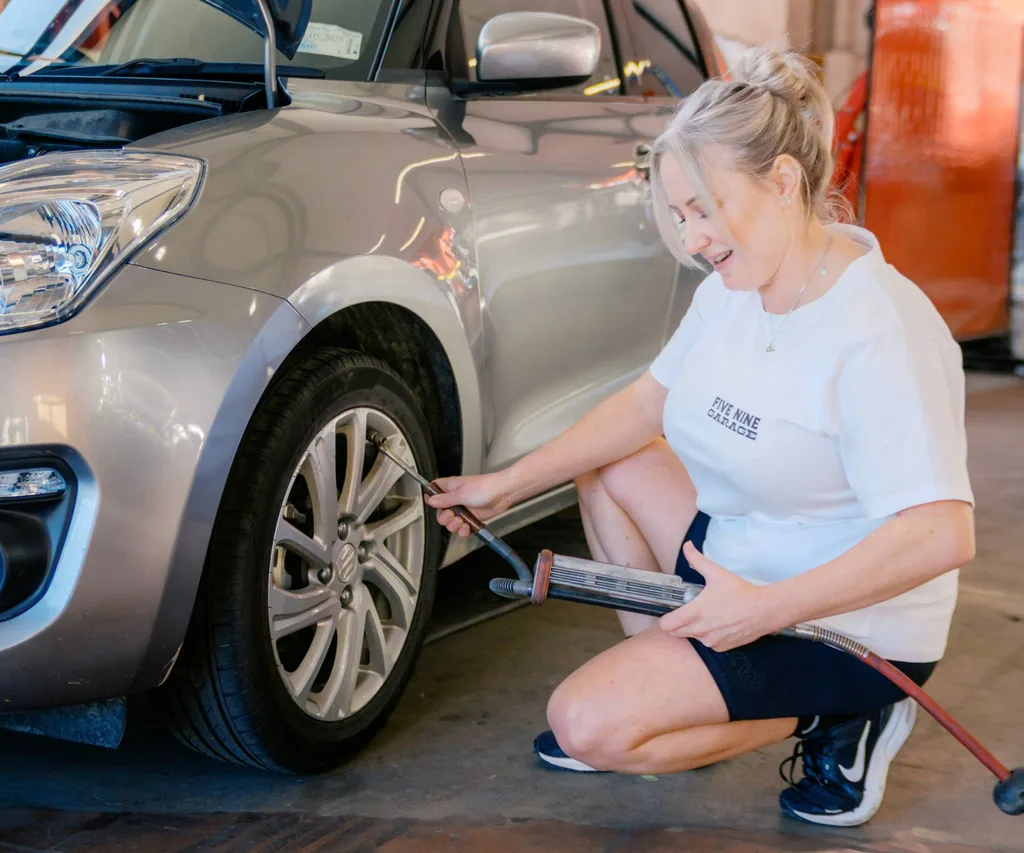
Eighteen months ago, she was inspired to empower other Kiwi women to be more knowledgeable and capable with their vehicles. Launching the Girls ’N’ Gasoline workshops, which she hosts all around the country. And when she’s not busy with cars for work, her passion project. A cherry-red 1959 Chevrolet Parkwood, which she imported from America nine years ago – keeps her busy.
“It came in not running, the engine was no good, it had no brakes, and it was in bits and pieces,” recalls Melissa, 36, who has never let anyone’s opinion deter her from pursuing her dreams in the male-dominated industry.
“It took me about a year to get it fully rebuilt and on the road. I was told it’s something I can’t do and that it was out of my league, so it was a big accomplishment.”
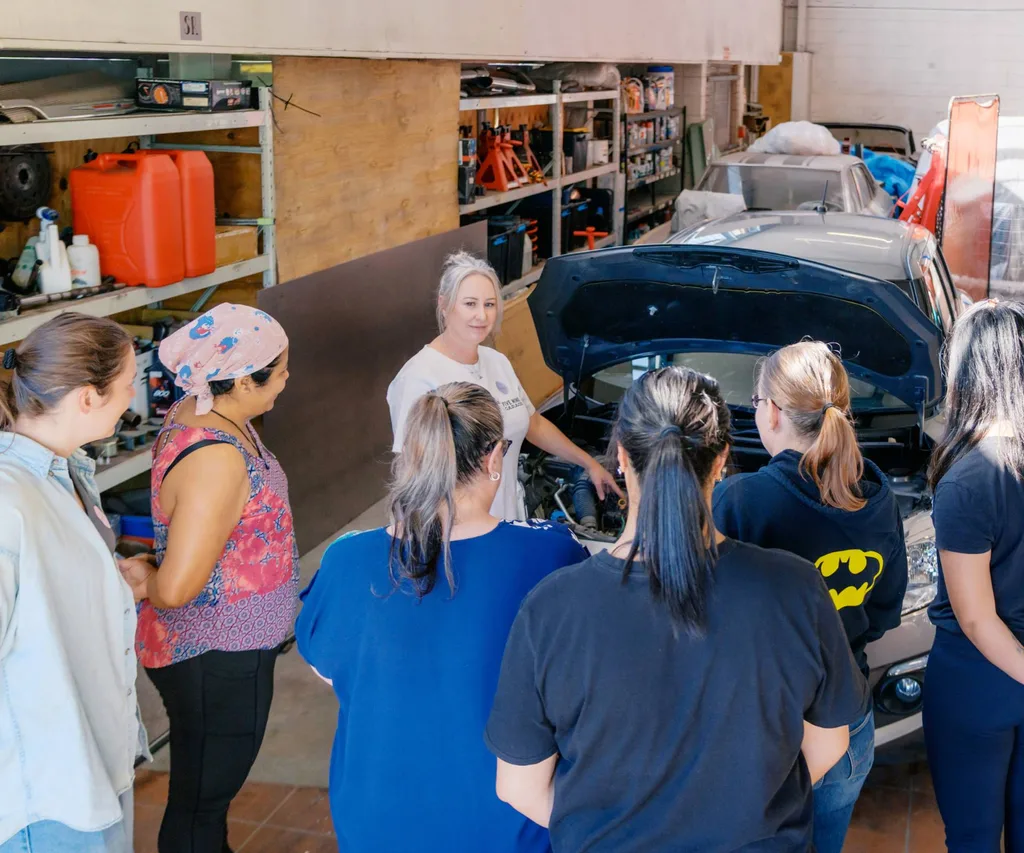
Pride of place is the custom number plate “NT HIS”, so there’s no doubt who the boss behind the classic car is
“I saved up and got the number plate when I was 17, so from a young age, I had the plate to go with my cars to prove they were mine.”
Melissa regularly fields messages from other young women who want to follow in her footsteps. And she always tells them to ignore any negative reactions and, “If it’s a passion, just go
for it!”
